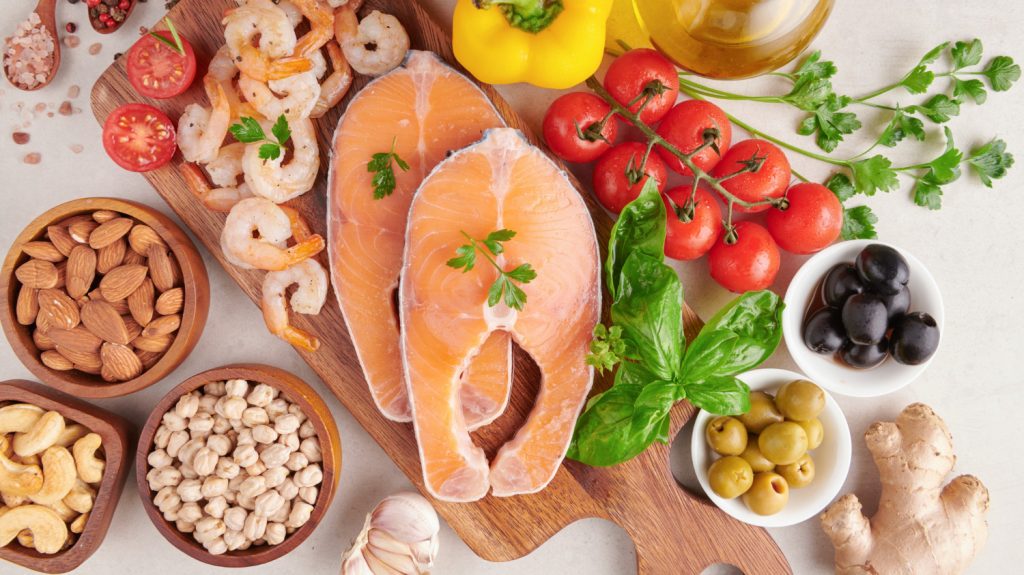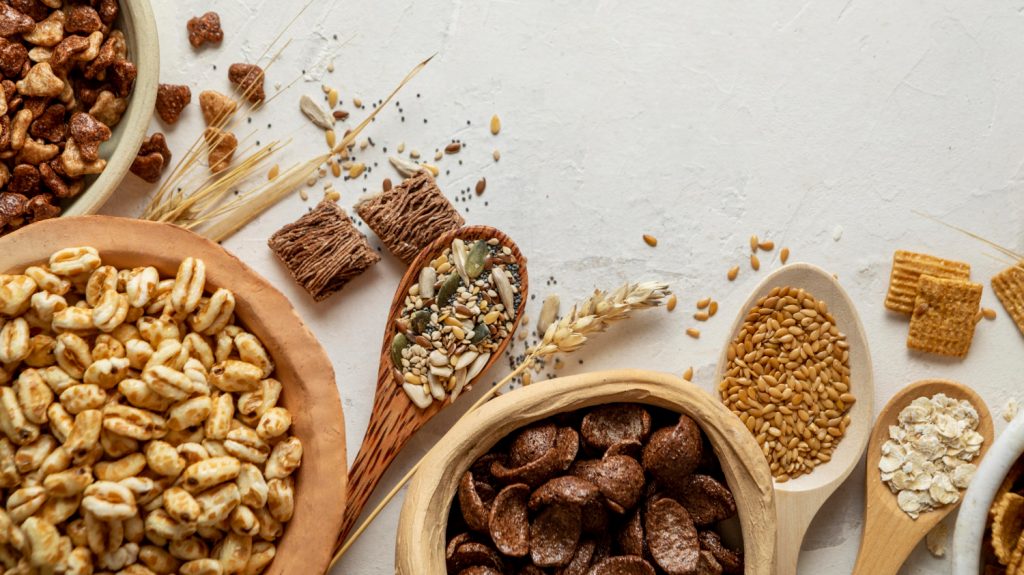Tips
What are whole foods?
Are you on a mission, trying to eat healthier? In this article, we’ll look over what whole foods are and some great examples of where to find them. Read on for more!
Advertisement
Find out what a whole foods diet is and the benefits it brings to your life

You may have heard the term “whole foods” before, but what exactly are they? Generally, they are unprocessed or minimally processed foods that are close to their natural state.
Contrasted with processed foods, which often have many additives and unhealthy ingredients.

Do daily activities count as exercise?
Is folding laundry, taking the stairs, or doing the dishes is enough to keep you active and healthy? Here's what you need to know about daily activities.
By eating them instead of processed foods, you’re getting more nutrients and fiber and less sugar and unhealthy fats.
Overall, eating whole foods is a healthier way to eat and can help promote a healthier lifestyle.
What are some examples?
Fruits, vegetables, whole grains, and lean proteins are some good examples.
Whole foods are a healthy alternative to processed foods, which are often high in calories and low in nutrients. Processed foods also often contain unhealthy ingredients, such as added sugar and trans fats.
By contrast, whole foods are rich in vitamins, minerals, and antioxidants. They also provide a variety of health benefits, including reducing the risk of chronic diseases such as heart disease and diabetes.
For these reasons, it is important to ensure that these healthy items make up most of your diet. Here are some examples you can include in your diet for a healthier lifestyle:
- Whole grains like brown rice, quinoa, and oatmeal;
- All sorts of fruit;
- All kinds of vegetables;
- Meat, like seafood and poultry;
- Nuts and seeds;
- Eggs;
- Cottage cheese and alike;
- Plain natural yogurt;
- Legumes;
- Olive oil, avocado oil, coconut oil.
You will be redirected to another website
By submitting this form, I agree that I am 18+ years old and I agree to the Privacy Policy and Terms and Conditions. I also provide my signature giving express consent to receive marketing communications via automated emails, SMS or MMS text messages and other forms of communication regarding financial products such as credit card and loans. Message frequency varies and represents our good faith effort to reach you regarding your inquiry. Message and data rates may apply. Text HELP for help or text STOP to cancel. I understand that my consent to receive communications is not a condition of purchase and I may revoke my consent at any time.
What is a whole foods diet?

A whole foods diet is one that focuses on eating whole, unprocessed foods.
This type of diet has been shown to provide numerous health benefits, including weight loss, improved heart health, and reduced inflammation.
It includes fruits, vegetables, whole grains, legumes, nuts, and seeds.
One of the key benefits of this kind of diet is that it cuts out processed foods, which are often high in unhealthy ingredients like sugar, salt, and unhealthy fats.
Eating whole foods instead can help you to lose weight, feel more energetic, and reduce your risk for chronic diseases. If you’re looking to improve your overall health, this diet is a great place to start.
Processed foods vs. whole foods
We all know well how convenient and quick eating processed foods are. Besides, everyone loves a good burger or a pizza every now and then.
While you don’t have to abolish processed foods from your menu completely, it’s best to keep them to a minimum.
When it comes to nutrition, whole foods are typically considered to be the healthier option. Unlike processed foods, they are minimally processed and contain no artificial ingredients.
They also tend to be a more natural source of nutrients like vitamins, minerals, and fiber. This is because processing can strip away many of the beneficial components of food.
For example, whole grains are a good source of B vitamins and minerals like iron and magnesium, but these nutrients are often lost during refining.
Additionally, whole foods tend to have a lower glycemic index, which means they’re less likely to cause spikes in blood sugar levels. Overall, whole foods are a healthier choice for your body.
What are the benefits of a whole foods diet?

A whole foods diet is one that focuses on eating minimally processed foods that are as close to their natural state as possible.
This type of diet has a number of benefits, both for individuals and for the environment. They are generally more nutrient-rich, and they also tend to be lower in calories.
Also, whole foods are typically more filling than processed foods, which can help to manage weight in the long term.
Furthermore, they generally have a lower impact on the environment than processed foods, as they require less energy and resources to produce.
As more people become interested in eating healthy and sustainable diets, whole foods will likely play an increasingly important role in the food industry, as it should.
Are there any downsides to this diet?
As with anything in life, there are a couple of drawbacks to maintaining a whole foods diet. One of the biggest challenges is ensuring that you’re getting enough variety in your diet.
While it’s important to eat plenty of fruits and vegetables, you also need to include other food groups like protein and grains.
If you’re not careful, you may end up with an unbalanced diet that doesn’t provide all the nutrients your body needs.
Two, it can be more expensive than processed foods. Plus, organic produce can be significantly more expensive than conventionally grown items.
People following this type of diet may need to take supplements to ensure they are getting all the nutrients they need.
In addition, following this diet can be time-consuming, as it typically requires cooking from scratch. As a result, those who are short on time or money may find it difficult to stick to this type of diet long-term.
Nevertheless, for those who are willing to make the investment, this diet can be a delicious and nutritious way to eat.
The best credit card for restaurants
If you love eating out, we’ve compiled a list of the best credit cards you can use at restaurants.
These are the best alternatives to have in your wallet when you want to go to a restaurant – be it for cash back, discounts, or exclusivity.
Check the list below for more details on which cards you should get. Plus, learn all you need to know about additional perks and potential drawbacks.

The best credit card for restaurants
Dining out doesn’t have to be expensive. With this selection of cards, you can choose the best one to use in your favorite restaurants and get rewards!
Trending Topics

See how to apply for the Lowe’s Advantage Card
Get rid of the trips to the hardware store without spending extra money. Apply for a Lowe's Advantage Card and enjoy easy savings.
Keep Reading
Best AI Chatbot Apps: Our Top Picks for 2023
Looking for the best AI chatbot apps in 2023? Check out our top picks for seamless and personalized customer interactions.
Keep Reading
Bank of Queensland Low Rate Credit Card review
Find out how you can save money with the Bank of Queensland Low Rate Credit Card. Get all your questions answered in our review!
Keep ReadingYou may also like

Credit card safety tips to keep your money and information secure
Protect your finances with our top credit card safety tips. Follow these guidelines to keep your money safe and secure. Read on for more!
Keep Reading
Bank of America® Unlimited Cash Rewards review
Our in-depth review on the Bank of America® Unlimited Cash Rewards! Learn how you can earn unlimited cash back on every purchase!
Keep Reading
Where should you invest your retirement fund savings?
Not sure where to invest your retirement fund savings? We’ll provide helpful advice and tips on how to make the most of those investments.
Keep Reading